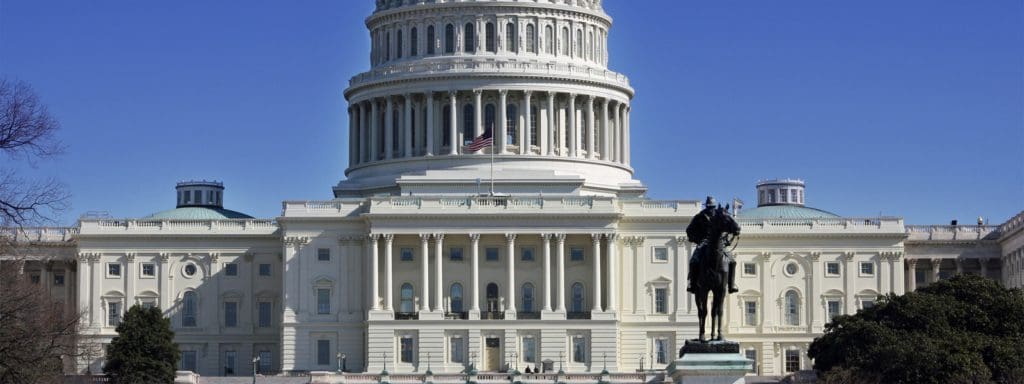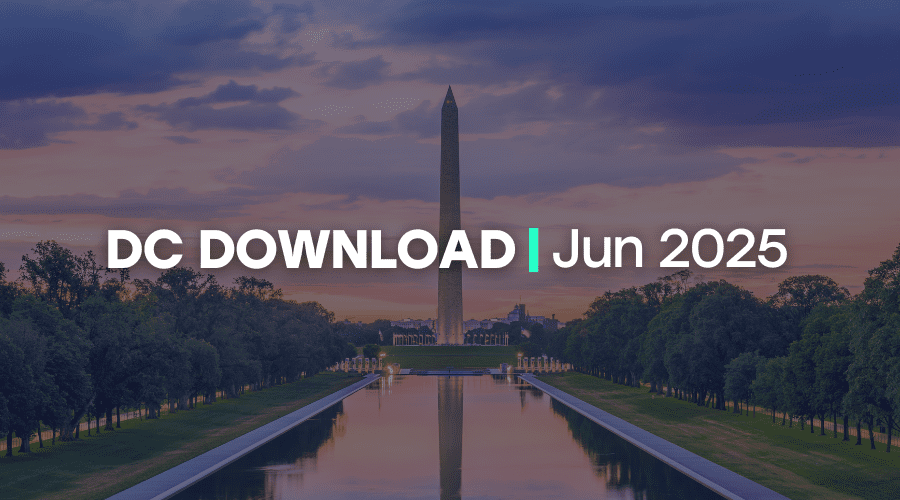Fall is in full swing in the District and things have remained hectic during the month before the presidential election, with the confirmation process of Justice Amy Coney Barrett, and negotiation talks turned cold on much needed COVID-19 relief funding. Here is a brief overview of the latest legislative issues impacting nonprofits during these challenging times:
No COVID-19 deal before the election
Following the confirmation vote on Justice Amy Coney Barrett on October 26, Senators left town for their October recess, and negotiation talks between House Speaker Pelosi and Treasury Secretary Mnuchin turned cold with no prospect of passing new COVID-19 relief legislation before the November 3 elections.
Negotiations have stumbled for weeks over both the size and shape of a new aid package. Democrats have sought more robust funding for state and local governments, while Republicans oppose funding for states. Republicans have pushed for liability protection for employers from pandemic-related lawsuits, while Democrats say workers’ rights must be preserved to ensure safe job sites.
On October 20, Senate Democrats introduced the HEROES Small Business Lifeline Act that would provide over $370 billion in funding for hard-hit small business and nonprofits. During the same day, Sen. Susan Collins (R-ME) also introduced a bill that would make $257.7 billion available for hardest-hit small businesses and nonprofits. Both bills would allow certain nonprofits and small businesses to receive a second forgivable Paycheck Protection Program (PPP) loan. This development kept up hopes of having some COVID-19 relief funding for small businesses and nonprofits passed before the end of the year.
A deal on COVID-19 relief funding may have to wait until at least after the second week of November, when the Senate is scheduled to be in session the week of November 9 and the House returns the following week.
Legacy IRA included in bipartisan retirement package
On October 27, House Ways and Means Committee Chairman Richard E. Neal (D-MA) and Ranking Member Kevin Brady (R-TX) introduced the Securing a Strong Retirement Act of 2020, bipartisan legislation to help a greater number of Americans save for retirement. The bill builds on the Setting Every Community Up for Retirement Enhancement (SECURE) Act of 2019. Here is a section by section summary of the bill.
This bill includes two provisions that will boost charitable giving, one of which is a modified version of the Legacy IRA Act (H.R. 3832), which would encourage more charitable giving by enabling seniors to make tax-free contributions from their individual retirement accounts (IRA) to charities through life-income plans. The other provision would expand the types of retirement accounts eligible to make charitable rollover contributions to, including critical workplace retirement accounts such as 401(k), 403(b), and 457 plans, as well as plans for small employers or the self-employed. By including accounts like 403(b) plans, the bill would permit retired nonprofit employees to contribute their financial resources to their community after dedicating their career in a similar manner.
Independent Sector submitted a letter of support for the inclusion of these provisions in the Securing a Strong Retirement Act of 2020.
IRS glitch prompted the loss of nonprofit status
The IRS is working on a fix for nonprofits that automatically lost their tax-exempt status because of a programming glitch at the agency. Thousands of nonprofits have had their tax exemptions stripped this year, despite IRS relief that gave them an extra two months to send in paperwork they’re required to file annually, a concession to the coronavirus pandemic. But IRS computer systems didn’t match the announced extension, triggering automatic revocations.
On October 21 Ways and Means Committee Democrats demanded Treasury Secretary Mnuchin explain why the IRS stripped tax exemptions from nearly 31,500 nonprofit organizations this year, including nearly 28,000 charities.
The issue appears to have arisen due to the coronavirus pandemic, which prompted IRS officials to relax a filing deadline that nonprofits typically face every May 15, as well as major processing delays at the agency after it closed its offices for an extended period.
Letter calls presidential candidates to expand national service
Independent Sector signed a letter addressed to the presidential candidates asking them to commit to prioritizing a significant expansion of national service accessible to all young Americans, should one of them be elected to serve as president, to help bring Americans together and fuel a much-needed civic renewal in America.
Census count ended early
On October 13 the Supreme Court approved a request made by the Justice Department to suspend a lower court order that extended the census count’s schedule. Lower courts previously ordered the administration to continue counting through October 31, reverting to an extended schedule that Trump officials had first proposed in April in response to delays caused by the pandemic, and then abruptly decided to abandon in July.
Hours after the ruling was released, the U.S. Census Bureau announced that the deadline to accept responses online at My2020Census.gov was October 15 at 11:59 p.m. Hawaii time. The bureau also set October 15 as the postmark deadline for paper forms as well as the end date for collecting phone responses and door knocking at unresponsive households. The Census Bureau is under pressure to meet a legal deadline of December 31 for reporting to the President on the first set of census results, while efforts continue in Congress to extend this deadline.



